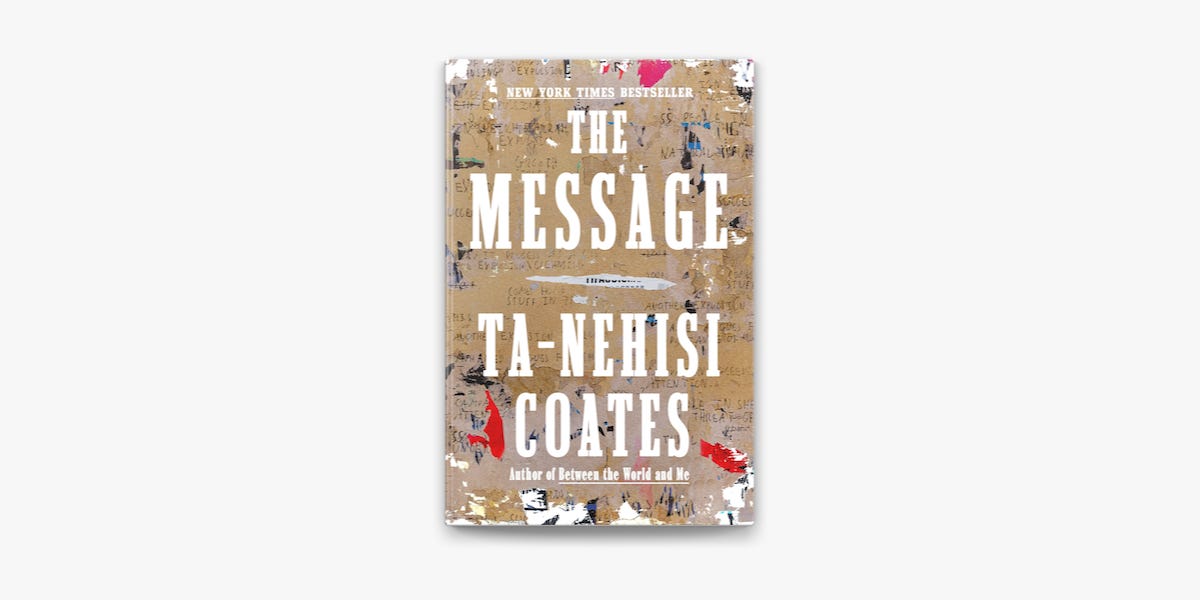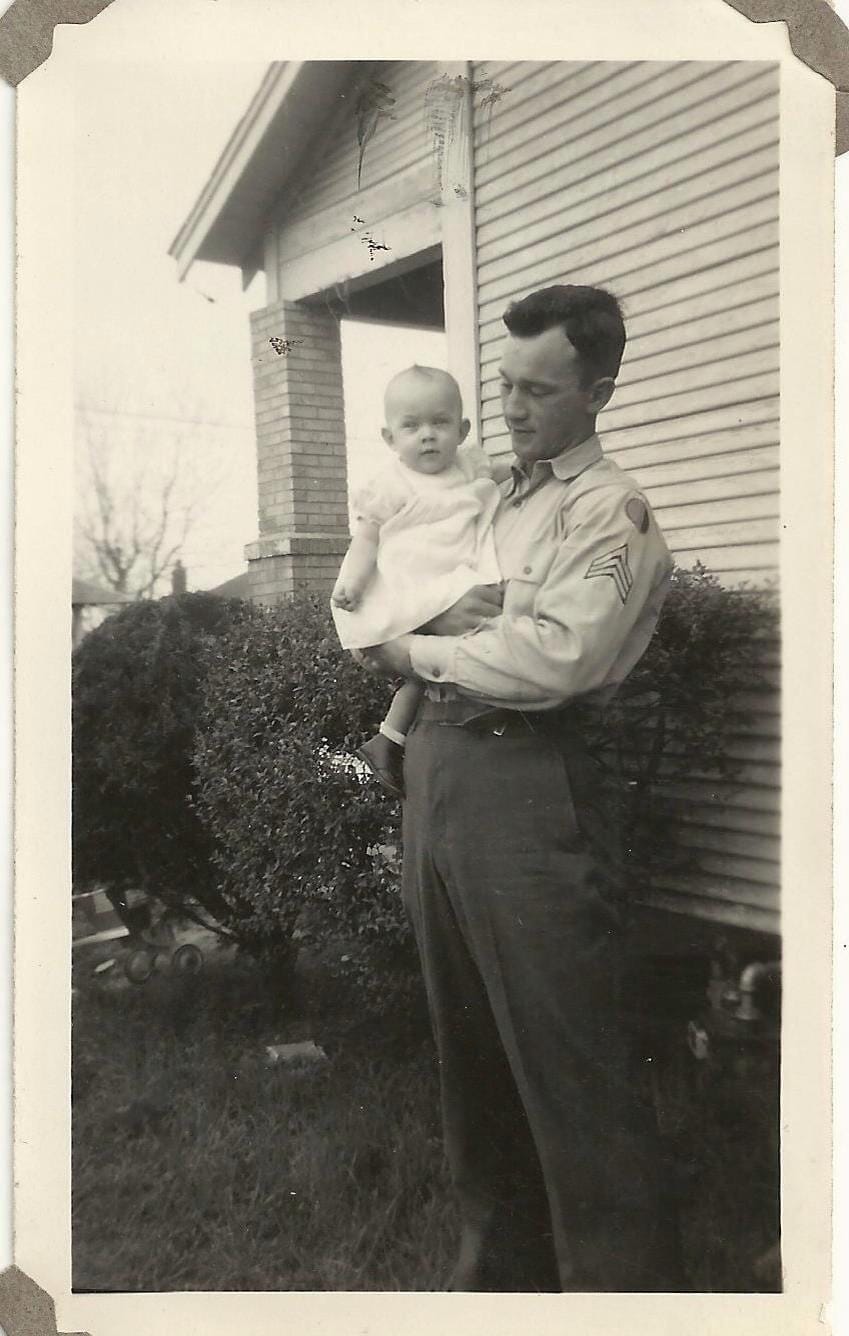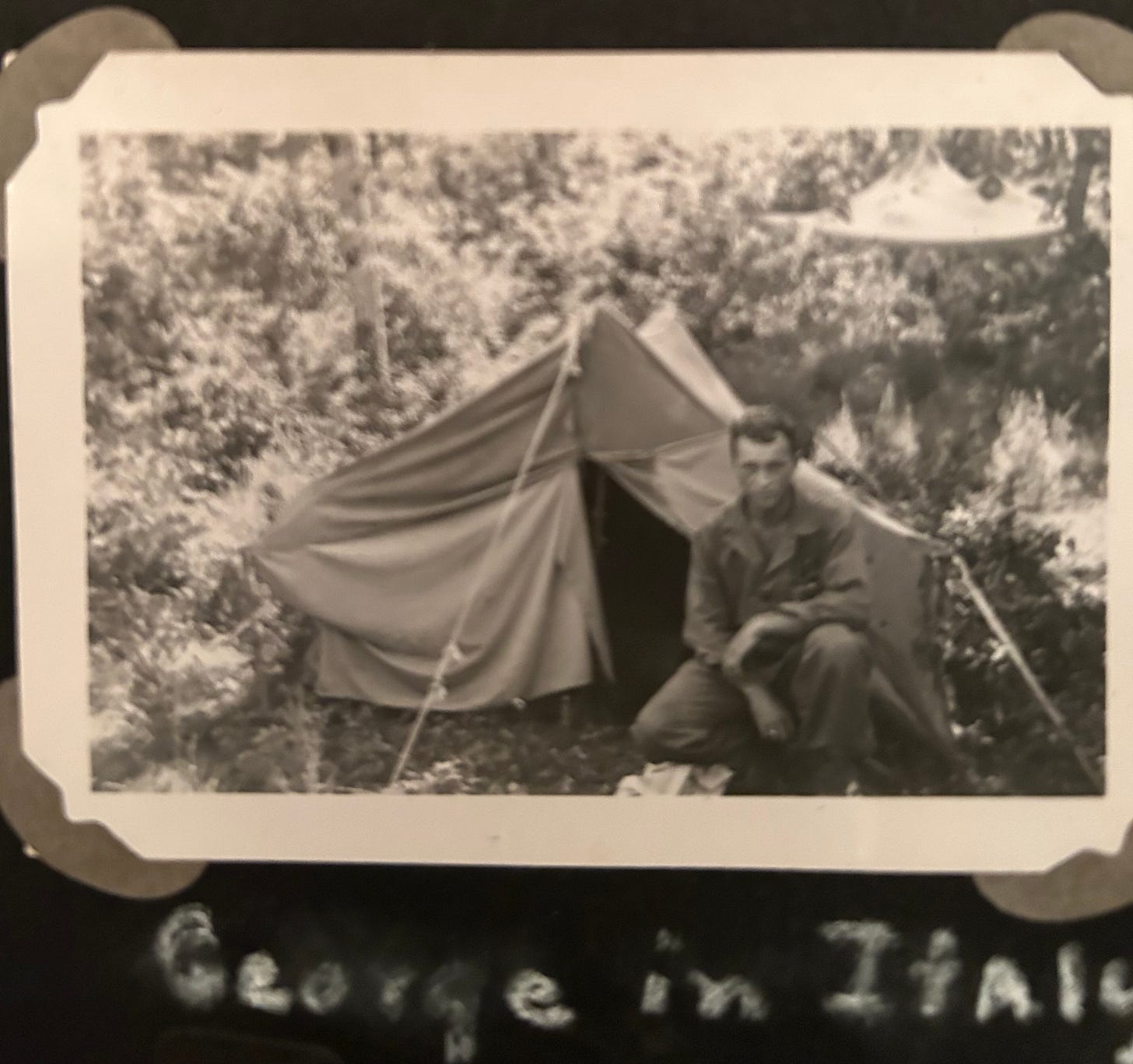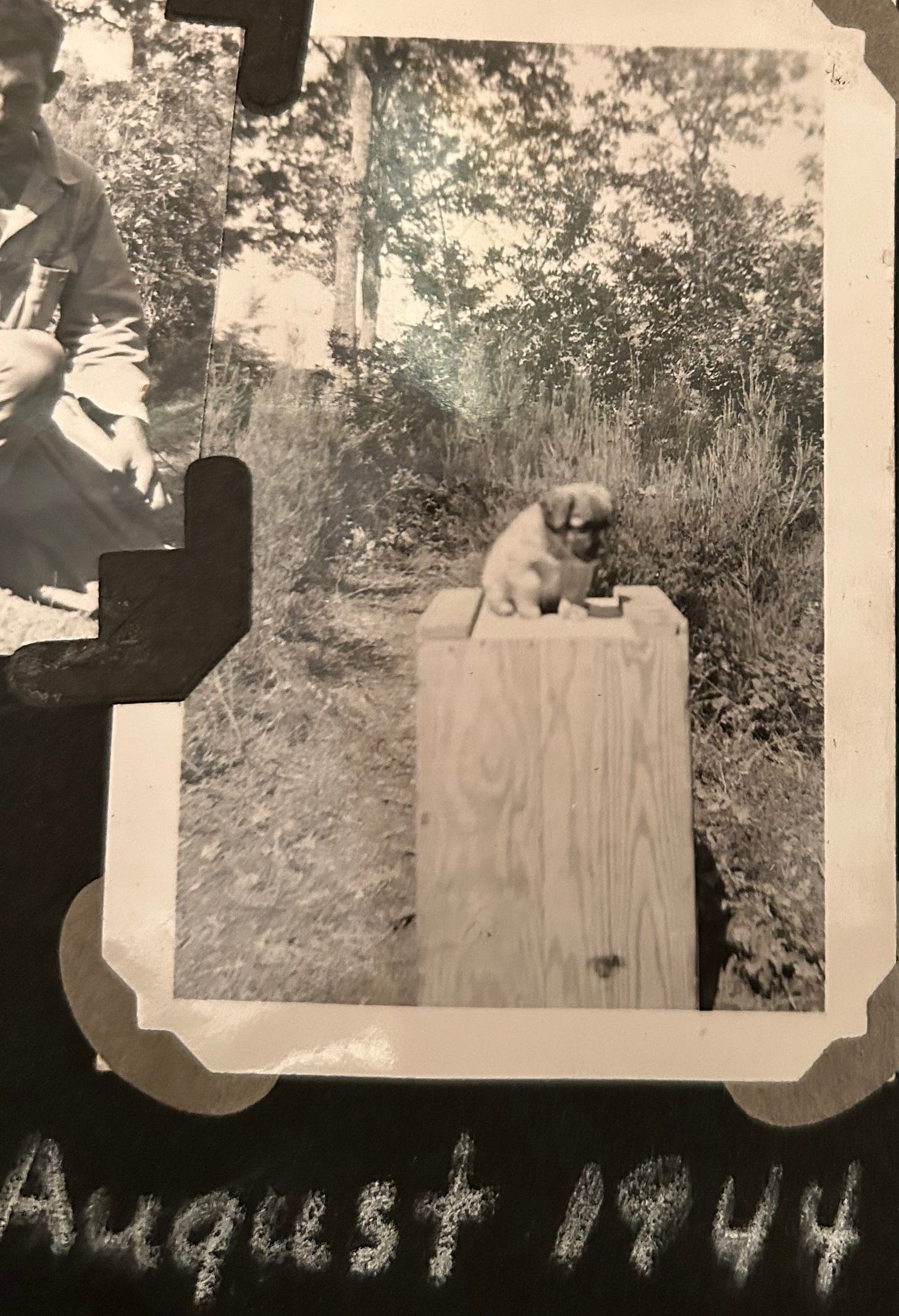I am typically at my best while multitasking, feeling the excitement of a new project as I’m putting the finishing touches on another. Last week, I felt a mix of surprise and disorientation as I completed two items from my self-imposed to-do list. Yes, this was the unofficial week of limbo hanging heavy between Christmas and New Years. Adding the unusual late rain and gray here in Costa Rica, I pushed to finish two projects while feeling I was in a sort of fever dream: listening to Ta-Nehisi Coates’ The Message in audiobook and transcribing my Grandpa George’s 176 letters written from 1941-1944.
In 2015, I adopted Coates’ Between The World and Me for my English 1A course before I had even finished reading it. His award winning text arrived just as I was deconstructing my own racial blind spots and colonized thinking that I was committed to removing from my classroom. BTWAM was a student favorite (meaning paradigm shifting) for over five years. The Message again arrived at a personally and professionally auspicious time that felt akin to a decade ago. I needed to listen and feel into how it would fit into my classes.
My mother, now eighty-one, gave me the adidas box of her father George’s letters and her baby ring he made from a dime while he was on a ship headed to North Africa before facing combat in Italy. Though we have more old photos than most families, I wanted to sit with these letters and preserve them for my children, nieces and nephews. Mostly, I wanted to feel closer to my unknown grandfather George Irwin Trotter, who died at the age of 25 while serving in the Army in Pontedera, Italy, when my mother was only 13 months old. Reading and typing each letter put me into his mind, cadence, and body.
While I’ll never know who George would have ultimately become, he is forever etched as young and ardent, loving my grandmother Velma fervently. They met at Guthrie Center High School in Iowa in 1938, when he was a senior and on the football team and she was a sophomore. The letters, of course, begin when they are apart. The first being four days before their wedding, December 25, 1941. In the letter, he’s secured an apartment in nearby Le Mars, where he’s working at a store for a few more months before his inevitable enlistment. Throughout all 176 letters, and in almost every sentence he addresses her as “darling,” and signs off “your husband who loves you with all his heart.” Their lucky number is 13, and he includes thirteen x’s (kisses) on every letter—26 after my mother is born.
Knowing the wake of devastation that followed his death made reading each sentiment, hope, longing, and side joke all that more poignant.
I also felt The Message viscerally, the way good journalism, travel writing or even poetry creates space in the body for an alchemy of new knowledge, lyrical expression, and emotional resonance. Coates traces his internal journey as a writer while documenting his travels and witnessing of book banning in South Carolina, his first trip to Africa, in Senegal, and his ten-day trip to Palestine pre-October 7, 2023.
In both my grandfather’s letters and Coates’ book, I grappled with uncomfortable truths that pinched. I felt the old reflex of mentally justifying my grandfather’s racist assumptions about the Mexican, Indian, and Japanese soldiers he served alongside and the kinship mixed with suspicion he felt with the Moroccan sheepherders and Italian farmers he met. I knew it would do no good to point to his isolation in Iowa, his poverty—he’d never owned a television or had access to magazines—his brainwashing by the radio reports and the Stars and Stripes. The letters were his own observations, his own loss of wonder— “after a week I’m growing weary of the sea and the way the boat comes up to meet my feet.” If I wanted to really know him, I needed to know ALL of him, and these letters were the only avenue.
In Coates’ book, he clarifies the oppression of Palestinians I’ve known about since the nineties when I read Said’s Culture and Imperialism. I kept asking myself, since I’d known since my twenties about the brutality of the occupation, why weren’t Said’s descriptions not real or urgent in my mind until this year?
What the letters and the book brought up for me is what it is to be so in the thick of unfamiliar places, people, foods, and histories that you can’t get your bearings. My grandfather’s journey was not by choice, but through compliance towards conscription. I felt gratitude that he was able to experience Washington DC, the ocean, a few sunny beach days on the Italian coast, and riding a bicycle around Lake Garda, viewing the snow capped mountains in mid July. In each letter, he forces a series of upbeat platitudes, but at times gems of authenticity shoot forward: jealousy of his brother-in-law who stayed stateside on the California coast, the fear of the unknown and nearby fighting, perplexity at seeing veiled women in Morocco, gratitude for a favorite olive tree that offered shade to write his letters, and the joy of a puppy named 88 that offered distraction and affection.
In The Message on several occasions Coates has to walk away from the tour or his hosts and be silent and solitary to process. He writes from his body about how the environments he visits envelops him with hypocrisy, familiarity, understanding, kinship, and self-knowledge. My favorite part comes towards the end when he says about sharing a meal with Palestinians in Chicagoland that “here I felt something that I have always enjoyed about reporting about seeing worlds beyond my own, feeling myself disappear.” I never assumed my grandfather could really know the places he visited because he was there as part of a gigantic machine landing among people who had just endured or were in the thick of the worst days of their lives. Yet, somehow, I longed for the letters to become like a portal that offered a glimpse at what my grandfather saw, smelled, felt and thought. I wanted to feel his presence in those places, even if his view was cursory or blurred.
On August 24, 1944, my grandfather walked into an Italian home. Maybe he was hungry. In an earlier letter he wrote that an Italian family had left fresh eggs before they escaped in a hurry. Maybe he was taking cover, as the house was near the Arno River and Gustav line a week before the Germans surrendered in that area, or maybe he was as my mother was told, sitting down at a desk to write my grandmother a letter when that makeshift mine exploded and catapulted my grandmother into emotional despair and into a journey west to California as a widowed mother, where I ultimately was born.
Both the book and letters tell an important truth of what war and oppression do to a land, to a people, to a family—their bodies, minds, and hearts.
“But I know how sadness can exert its own gravity, growing more powerful the longer it holds you.”
― Ta-Nehisi Coates, The Message
I hope that as we close down 2024 and move into 2025 (more breathwork and offerings will be posted tomorrow.) that you take time to hover over the stories in your own family and in our world not despite their gravity or sadness, but because of them.









Kimberly, your writing is so powerful and poignant. Thank you for sharing.